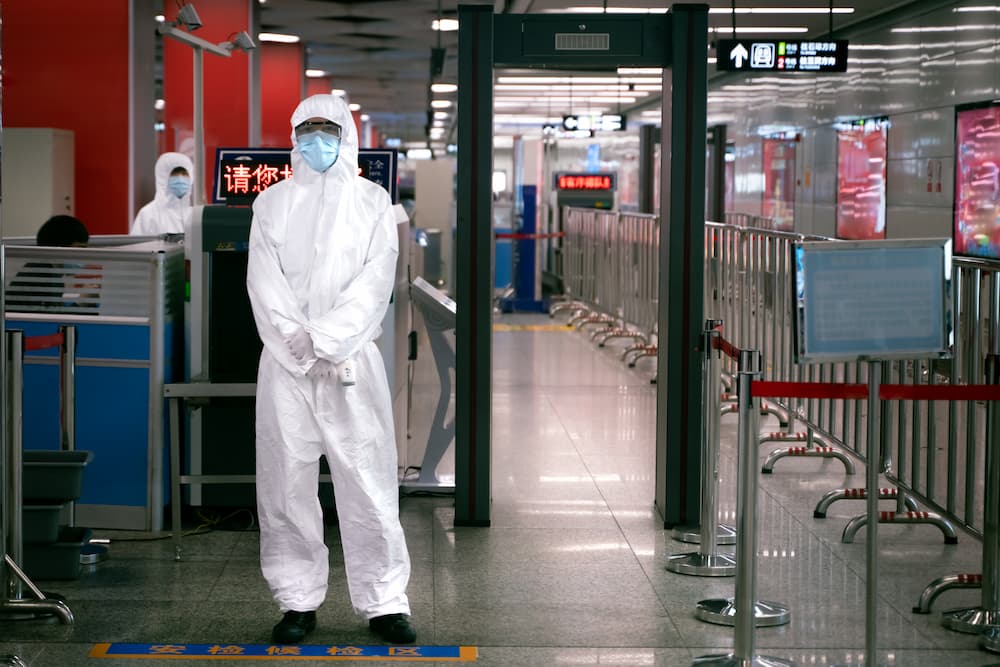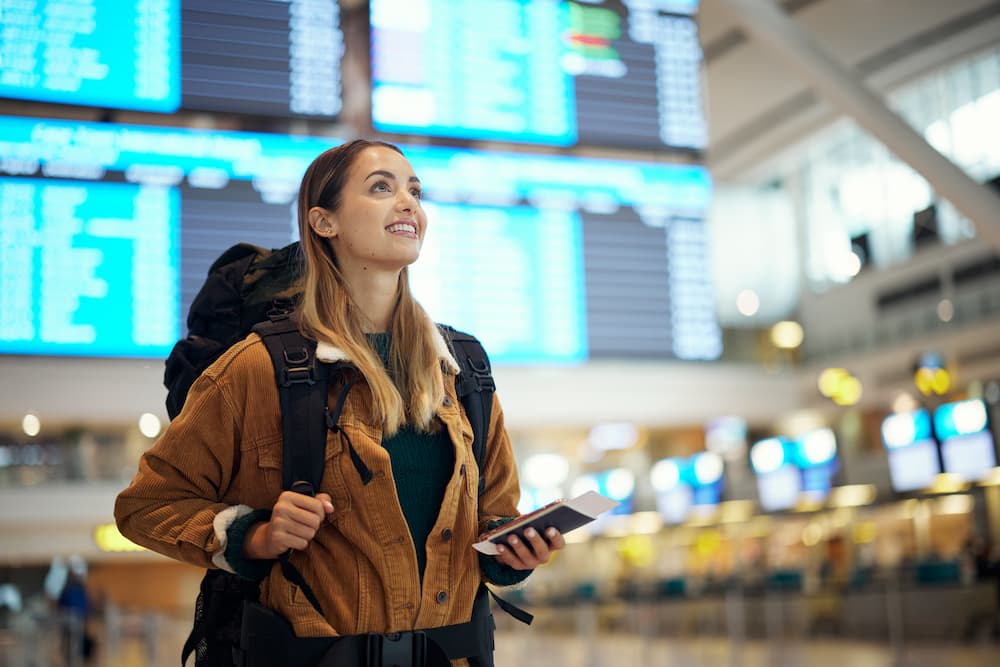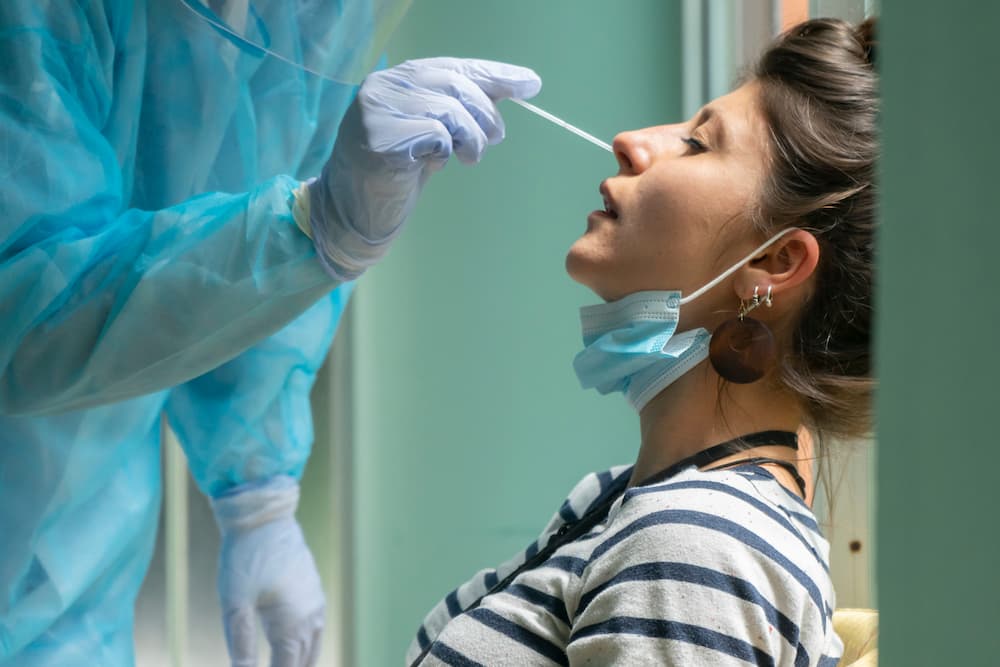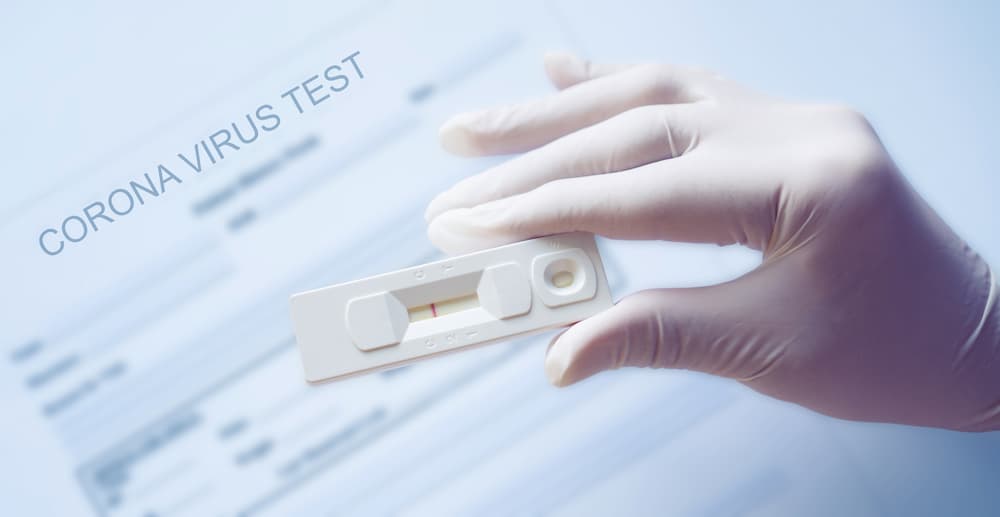Most countries, including Canada, have already lifted COVID travel restrictions. As a result, you don’t need a COVID test or vaccination certificate to board a plane, train, or marine vessel. In addition, COVID restrictions are not in place at the border point.
However, people who’ve tested positive or displayed COVID symptoms are not allowed into Canada. On the other hand, if you develop COVID symptoms en route to Canada, the quarantine officer may require you to self-isolate before proceeding.
Getting tested in advance is recommended if you’ve been exposed to someone who recently tested positive or with COVID-19 symptoms. If you don’t know your COVID-19 status, the symptoms could appear when least expected, including while traveling, jeopardizing your travel plans.
With that in mind, consider getting a COVID-19 test 1-2 days before traveling to Canada to help you make an informed choice before departure. If you want a quick and reliable COVID-19 test, consider visiting a trusted and reputable urgent care center in Newport Beach.
Do You Need a COVID Test to Fly to Canada?
No. You don’t need a COVID-19 test when flying to Canada.
You’re also not required to show proof of vaccination. However, you’re encouraged to take precautions, including wearing a well-constructed and fitted mask or respirator during travel.
Travelers with COVID-19 symptoms should not travel to COVID-19.
Requirements to Enter Canada from the U.S.
The following travel requirements that were previously in place have been lifted for travelers entering Canada by air, land, or marine:
As such, travelers do not need:
- Proof of Covid-19 vaccination
- Pre-board testing
- To quarantine after entering Canada
- Pre-boarding test for cruise passengers
- Health tests to board planes and trains
- To wear masks on planes and trains
- To use Arrive CAN
- COVID arrival and pre-entry test
You can use the ArriveCAN customs and immigration feature to complete your declaration beforehand if you’re flying into a participating international airport to save some valuable time.
Wearing a well-designed and fitting mask or respirator anytime you travel is also highly recommended.
However, you shouldn’t travel to Canada if you have symptoms of COVID-19.
If you feel sick or experience symptoms of COVID-19 while traveling or upon arrival, take the following steps:
- Upon arrival, inform the flight attendant, border services, or cruise staff— they will primarily request a quarantine officer to assess your health and offer further direction.
- Avoid using public means of transport.
- Check provincial or territorial requirements of what you’re supposed to do if you’re symptomatic or have tested positive.
Requirements for Returning to the U.S. from Canada
If you plan to visit the U.S., you don’t need to be tested or vaccinated for COVID-19.
Here’s the timeline for vaccine and testing rules for entering the U.S:
As of June 12, 2022, the Department of Homeland Security lifted the need for people entering the United States to show proof of a negative COVID test.
As of May 12, 2023, noncitizen non-immigrant visitors arriving by air, land, or sea are not required to show proof of being fully vaccinated against COVID-19.
Symptoms of COVID-19
People with COVID-19 symptoms have a wide range of symptoms ranging from mild to severe. Covid symptoms typically appear 2-14 days after exposure to the virus. The time before exposure and display of the virus is known as the incubation period.
You can still spread the virus even when you’re not displaying the symptoms, known as pre-symptomatic transmission.
Common symptoms of COVID-19 include:
- Sore throat
- Headache
- Fever
- A new loss of smell and taste
- Fatigue
- Difficulty in breathing
- Shortness of breath
- Nausea and vomiting
- A new or continuous cough means a persistent cough of more than an hour— or 3 or more coughing episodes in 24 hours.
- Runny nose and congestion
- Rash
- Pink eye
- Chills
- Muscle aches
- Loss of appetite
Children have symptoms similar to adults but generally develop a mild illness. A new loss of taste or smell is an early symptom of COVID-19. Some people experience severe symptoms such as worsening shortness of breath and pneumonia a week after the symptoms start.
On the other hand, some people experience COVID-19 symptoms for more than 4 weeks after they’re diagnosed.
What to Do If You Have COVID-19 Symptoms
It is possible to take care of yourself at home if you have symptoms of COVID-19.
Try to stay at home or avoid people if you have symptoms and:
- Your body has high temperatures.
- You’re not feeling well to work, attend school, childcare, or do everyday activities.
What to Do If You Have Tested Positive
Here’s what you need to do if you have tested positive for COVID-19:
- Stay at home and avoid contact for an additional three days after the positive test if you’re 18 years and below.
- Avoid meeting people likely to get sick from COVID-19, such as people with weakened immune systems, for ten days after the test.
- Stay at home and avoid contact for an additional five days if you’re 18 years and above.
When to Visit an Urgent Care Center
If you have symptoms or have had contact with someone diagnosed with COVID-19, contact your healthcare provider immediately.
The physician will mostly recommend that you should get tested.
You should also get advice from a healthcare provider if:
- Your symptoms are getting worse.
- You have other worrying signs, including rash, weakness, or loss of appetite.
- You have experienced a fever in the last five days that is not coming down with paracetamol.
If you develop the following emergency COVID-19 symptoms, seek medical attention immediately:
- Troubled breathing
- New confusion
- Difficulty staying awake
- Constant chest pain or pressure
- Grey, pale, or blue-colored lips, nail beds, or skin
- Coughing up blood
- Faint, collapse, or have a seizure for the first time
Call 911 or drive to a nearby emergency facility if anyone displays the above symptoms. Notify the phone operator that you’re requesting help for someone who may have or has signs of COVID-19.
Total Cases
COVID-19 indicators such as test positivity, hospital admissions, and emergency department visits are rising nationally. However, hospital admission levels that necessitate individual and community interventions are currently low for more than 99% of the country.
Canadian Travel Clinics Covid 19 Antigen & Antibody Test (For Travel and non-Travel Purposes)
You can take a COVID test in a variety of places, including:
- Hospitals
- Urgent care centers
- Community-based COVID-testing centers
- Health clinics
- Pharmacies
Here’s a breakdown of the different types of antigen tests:
COVID-19 Antigen Test
An antigen test is a rapid test that produces results within 15-30 minutes. The test determines if you have a current COVID infection. It detects proteins on the surface of the SARS-CoV-2 virus.
Here’s how a COVID-19 antigen test works:
After collecting a fluid sample from nasal drainage, the test kit looks for specific viral markers called antigens. If the sample has the SARS-CoV-2 virus, the antibodies in the antigen test will bind the antigens producing a positive result.
The sensitivity of antigen tests is lower than a molecular COVID-19 test, increasing the probability of false results. The kit did not detect the virus if the antigen test returned a negative outcome.
Even so, it doesn’t rule out an infection.
Therefore, all negative results from an antigen test are considered ‘’presumptive,’’ which means they’re not final results.
Consequently, FDA recommends repeat testing following a negative test whether or not you find you have COVID-19 symptoms.
To be sure you don’t have COVID-19, FDA recommends 2 antigen tests taken 48 hours apart for individuals with symptoms. Alternatively, you should take 3 tests 48 hours apart if you don’t have symptoms.
On the contrary, a positive result is very accurate and reliable. Even so, an antigen test is less likely to detect the SARS-CoV-2 virus than a molecular or a PCR test, especially if you don’t have symptoms.
How Accurate is an Antigen Test?
According to a study conducted in 2021, an antigen test correctly detected COVID in 72% of people with symptoms and 58% of people without symptoms. On the contrary, a PCR test accurately identified 95% of people with COVID
Because of the lower accuracy levels in antigen tests, you may need a PCR test to confirm a negative result if you currently have COVID-19 symptoms.
When to Get an Antigen Test
- If you have symptoms, test immediately
- If you don’t have symptoms but have been exposed to COVID symptoms, wait at least 5 days after exposure before taking a test.
- You may also need an antigen test even if you don’t have symptoms or recent exposure and plan to travel, attend an event, or visit someone from a high-risk area. Do the test as close as possible to the travel day(1-2 days) to help you make an informed choice about your health and the risk of spreading it to others.
Antibody Test
The COVID-19 antibody test is also known as a serology test, a blood test that provides information on how the body reacted to the SARS-CoV-2 virus. It’s also used to establish someone who has the virus.
It’s important to note that an antigen test can’t detect someone infected with COVID-19.
Your immune system makes antibodies in response to any infection. After a COVID infection or vaccination, your body can take 2-3 weeks to produce enough antibodies to be detected in an antibody test.
Therefore, it is recommended to wait for a while after being diagnosed. Antibodies may remain in your blood many months after infection—however, it is not clear how long antibodies last in the blood.
When Can You Expect Results of an Antibody Test?
Results of antibody tests vary— you can get it as early as the same day. However, it may take 1-3 days to get results after sending the sample to an external lab. The accuracy levels also improve with time; the antibody test will likely return a positive outcome three weeks after infection.
What Will Happen if I Test Positive for Covid-19?
If you get a positive test for COVID-19, it means the test detected the virus, and you have or recently had an infection.
Take the following precautions:
- Isolate and take precautions, including wearing a high-quality mask or respirator that protects those around you from infection.
- Tell those you recently interacted with that you’ve been exposed
- Monitor your symptoms closely; if you notice emergency symptoms, seek immediate medical attention
- Contact a healthcare provider or an urgent care center about the possible treatment options available to you. The efficiency of COVID-19 improves if you start it immediately after testing positive.
- You’re more likely to get sick if you’re elderly or have an underlying medical condition. However, treatment is available—talk to a healthcare provider to determine the best treatment option.
Checklist and Resources for International Travellers
There’s a high chance that the country you’re about to visit will require a negative COVID test before granting you a pass. With that in mind, research the type of test the target country accepts and how long it may take.
Here are a few helpful links as you make your travel plans:
- COVID-19 Travel and Testing: Travel and testing link
- Proof of Vaccination: Link
- Travel and Tourism: Information on traveling to, from, and within Canada.
- COVID-19 and International Travel
Centers for Disease Control and Prevention(CDC) Resources
- International Travellers Landing Page
- Travel Requirements
- International Travel: Find helpful information for U.S citizens, Permanent Residents, U.S Nationals, and people traveling into the United States using immigrant visas.
- Air Travel to the United States for Non-U.S Immigrants and Non-U.S Citizens
Try Newport Urgent Care Center Covid Test For International Travel
Despite a growing wave of relaxed travel restrictions, Canada, among other countries, is still wary of the threat posed by COVID-19. As such, border control officers and international carriers are always looking for travelers with COVID-19 symptoms.
With that in mind, it’s recommendable to understand your status and ensure you’re traveling COVID-19-free to a foreign country such as Canada.
Newport Urgent Care & Occupational Medicine has a well-equipped laboratory and trained physicians ready to serve you.
Contact us online or call us at 949.832.6347 to book an appointment.







